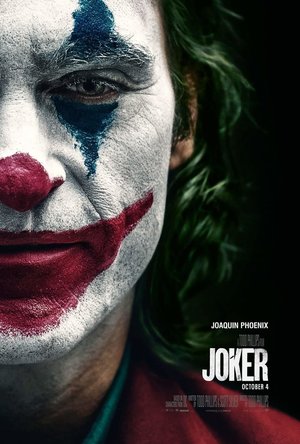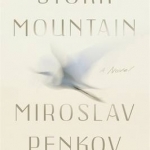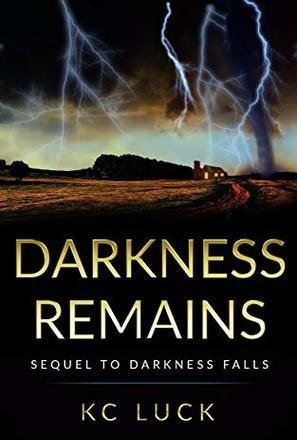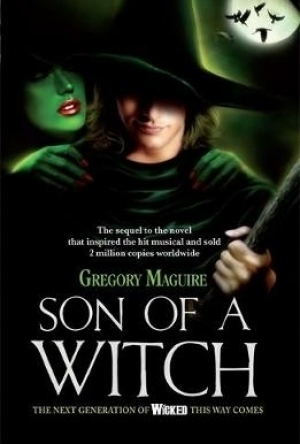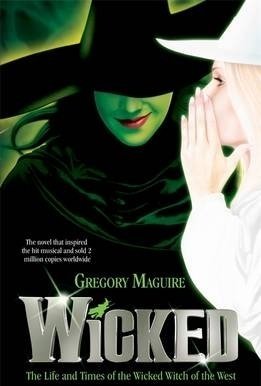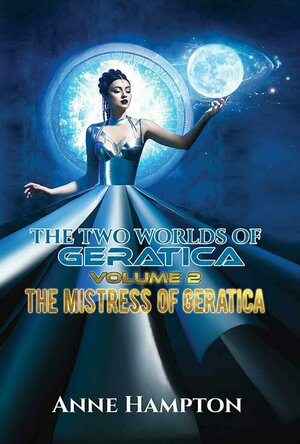Search
Search results
James P. Sumner (65 KP) rated Joker (2019) in Movies
Oct 7, 2019
An unapologetic masterpiece.
I wasn't sure what to expect going into this film. I'm a huge comic book fan, so the controversy and scepticism surrounding this movie, as well as the fact it's based within an established story world, had me doubting how it would work and how good the execution of it would be.
I certainly didn't expect the film I saw.
The basis for this movie is simple and effective: Arthur Fleck (played with a career-defining performance by Joaquin Phoenix) is a mentally unstable and depressed wannabe stand-up comedian working as a clown in a 1980's Gotham City. The movie is set against a backdrop of civil unrest, worker strikes and city-wide poverty, with each being exaggerated to highlight both the severity of each one for the purposes of the film, but also to shine a spotlight on how tough the real world was back then.
A potentially fatal encounter on a late-night subway acts as a catalyst for Fleck, who is shown throughout the first 20 minutes to be a man living on a knife's edge - balancing his own pitiful existence with the way society believes he should act. You get the sense that it would take nothing more than a gentle push to send him one way or the other. The subway was that push.
In a city that very much reflects the character's state of mind, this served to push more than just Arthur Fleck over the edge. Because he happened to be dressed as a clown at the time, and because the *cough* victims *cough* worked for Wayne Enterprises (ran by Thomas Wayne himself), it's seen by many as a vigilante act - someone standing up to the rich elite. This sparks outrage and rioting across the city. The idea of a man dressed as a clown standing up for the little guy becomes the poster child for a civil movement, much in the styling of "V For Vendetta (2005)".
The more Arthur Fleck struggles personally, the worse the streets of Gotham seem to get, as if society's increasing tension and unrest is somehow linked to his own state of mind. He finally realises what he has inadvertently created and begins to transform himself into the vigilante icon people already believe him to be.
Despite the slow pace of the movie, it never seems to drag. The story of Fleck's inevitable descent unfolds patiently, showing you exactly what it wants you to see, when it wants you to see it. It's a very bold and confident step for a movie which would've known how controversial it was going to be before it was even released.
The style of the film is extremely clever. The soundtrack is little more than a low-frequency hum, which plays almost constantly throughout. The camerawork is also exceptional. In every shot of Arthur Fleck, the camera centres on him before very slowly closing in on him. It's subtle, perhaps only a few millimetres per shot, but it's noticeable enough that you feel yourself being pulled in, being legitimately gripped by what you're watching. This contributes to what is, overall, a claustrophobic and sometimes unnerving experience.
There has been initial controversy about the film, with reports of people leaving the cinema during the screening for varying reasons. You see this from time to time, and the cynic in me thinks this is rarely more than clever marketing tactics. And then you see the comments from people who say they were disgusted or sickened or disturbed or whatever. I usually think it's a load of rubbish. That people are just saying that for attention. I don't honestly believe people who are that easily offended by a movie would choose to see something that is clearly going to show you all the things you don't like.
However, with "Joker (2019)", I can actually understand it. This is a truly disturbing film. Not for the violence, which has been the subject of much debate. There's actually very little violence in the movie, but when it's there, it's pretty graphic, admittedly. But honestly, it's not anywhere near as bad as a lot of things you see nowadays. No, it's disturbing because of how believable Arthur Fleck is. Seeing how unstable he is. Seeing how easy he can choose to do terrible things. It's... uncomfortable to watch at times, but only because it's so well done, so well written, you hate yourself for sympathising with him.
If I had to draw comparisons for this movie, I would have to say it's more subtle than "Watchmen (2009)", it's grittier and darker than "Taxi Driver (1976)" or "Fight Club (1999)" and much more uncompromising and unapologetic than "Natural Born Killers (1994)". It is truly a modern-day masterpiece. There are two major plot twists, both occurring in the second act, which really highlight the genius behind the screenplay. This movie is written perfectly, and executed the same way on-screen by Phoenix, who draws from both Jack Nicholson and Heath Ledger to create this unique take on the character which more than holds its own.
Now, before I summarise, we do need to address the whole... y'know... Batman thing. This is the Joker's origin story, after all.
So, first thing's first: this isn't a comic book movie. Not by a long way. This belongs in the same conversation as Goodfellas, not Guardians of the Galaxy. Director Todd Phillips has even stated that this is simply a stand-alone movie telling a story that needed to be told. Yes, it has references to the DC comic universe (which I will omit here for fear of venturing into spolier territory), but it's unlikely to ever cross over with DC's attempt to mimic the MCU.
The nods to the comics are infrequent but clever, touching on themes and events we already know, and in some cases, re-writing them entirely - which definitely will draw controversy with the hardcore comic fans. For example, I did question why they used the civil unrest subplot and backdrop to essentially try and make Wayne Enterprises the villain of the story, but like it or not, it was necessary and it worked like a charm.
I don't know if this was intentional or not, but there was one scene in particular towards the end of the movie where the Joker (as he is now) is riding in the back of a car with his head leaning against the window. The camera was on the wing mirror, focused on his face, and almost frame-for-frame it reminded me of the iconic scene in "The Dark Knight (2008)" where Heath Ledger's Joker is driving with his head out of the window. I'd like to think this was a gracious tribute to the performance of this character that will never be topped.
For a film that breaks the conventions of story-telling by having no real build-up or climactic ending, I have to say I can't remember a time when I was so blown away, so moved, and so affected by a movie. As close to perfect as you'll see this year.
10/10
A quick side note:
The show "13 Reasons Why" has a disclaimer at the beginning of each series from the cast that essentially warns viewers that, due to the sensitive nature of the content, it's inadvisable to watch it if you're struggling with depression or suicidal thoughts. I genuinely think this film should carry a similar notice. It's a dark, grim, unrelenting journey into one man's depressive life. While I won't ever believe listening to Marilyn Manson can make you want to shoot schoolchildren, I do think that if someone is struggling with suicidal thoughts or depression, this movie probably isn't for them. The story focuses on the media glorifying the terrible acts of someone who is mentally unstable. Yes, it's a movie. It's not real. But for someone in a very bad place themselves, this probably isn't the kind of thing you need to, or should, watch.
I certainly didn't expect the film I saw.
The basis for this movie is simple and effective: Arthur Fleck (played with a career-defining performance by Joaquin Phoenix) is a mentally unstable and depressed wannabe stand-up comedian working as a clown in a 1980's Gotham City. The movie is set against a backdrop of civil unrest, worker strikes and city-wide poverty, with each being exaggerated to highlight both the severity of each one for the purposes of the film, but also to shine a spotlight on how tough the real world was back then.
A potentially fatal encounter on a late-night subway acts as a catalyst for Fleck, who is shown throughout the first 20 minutes to be a man living on a knife's edge - balancing his own pitiful existence with the way society believes he should act. You get the sense that it would take nothing more than a gentle push to send him one way or the other. The subway was that push.
In a city that very much reflects the character's state of mind, this served to push more than just Arthur Fleck over the edge. Because he happened to be dressed as a clown at the time, and because the *cough* victims *cough* worked for Wayne Enterprises (ran by Thomas Wayne himself), it's seen by many as a vigilante act - someone standing up to the rich elite. This sparks outrage and rioting across the city. The idea of a man dressed as a clown standing up for the little guy becomes the poster child for a civil movement, much in the styling of "V For Vendetta (2005)".
The more Arthur Fleck struggles personally, the worse the streets of Gotham seem to get, as if society's increasing tension and unrest is somehow linked to his own state of mind. He finally realises what he has inadvertently created and begins to transform himself into the vigilante icon people already believe him to be.
Despite the slow pace of the movie, it never seems to drag. The story of Fleck's inevitable descent unfolds patiently, showing you exactly what it wants you to see, when it wants you to see it. It's a very bold and confident step for a movie which would've known how controversial it was going to be before it was even released.
The style of the film is extremely clever. The soundtrack is little more than a low-frequency hum, which plays almost constantly throughout. The camerawork is also exceptional. In every shot of Arthur Fleck, the camera centres on him before very slowly closing in on him. It's subtle, perhaps only a few millimetres per shot, but it's noticeable enough that you feel yourself being pulled in, being legitimately gripped by what you're watching. This contributes to what is, overall, a claustrophobic and sometimes unnerving experience.
There has been initial controversy about the film, with reports of people leaving the cinema during the screening for varying reasons. You see this from time to time, and the cynic in me thinks this is rarely more than clever marketing tactics. And then you see the comments from people who say they were disgusted or sickened or disturbed or whatever. I usually think it's a load of rubbish. That people are just saying that for attention. I don't honestly believe people who are that easily offended by a movie would choose to see something that is clearly going to show you all the things you don't like.
However, with "Joker (2019)", I can actually understand it. This is a truly disturbing film. Not for the violence, which has been the subject of much debate. There's actually very little violence in the movie, but when it's there, it's pretty graphic, admittedly. But honestly, it's not anywhere near as bad as a lot of things you see nowadays. No, it's disturbing because of how believable Arthur Fleck is. Seeing how unstable he is. Seeing how easy he can choose to do terrible things. It's... uncomfortable to watch at times, but only because it's so well done, so well written, you hate yourself for sympathising with him.
If I had to draw comparisons for this movie, I would have to say it's more subtle than "Watchmen (2009)", it's grittier and darker than "Taxi Driver (1976)" or "Fight Club (1999)" and much more uncompromising and unapologetic than "Natural Born Killers (1994)". It is truly a modern-day masterpiece. There are two major plot twists, both occurring in the second act, which really highlight the genius behind the screenplay. This movie is written perfectly, and executed the same way on-screen by Phoenix, who draws from both Jack Nicholson and Heath Ledger to create this unique take on the character which more than holds its own.
Now, before I summarise, we do need to address the whole... y'know... Batman thing. This is the Joker's origin story, after all.
So, first thing's first: this isn't a comic book movie. Not by a long way. This belongs in the same conversation as Goodfellas, not Guardians of the Galaxy. Director Todd Phillips has even stated that this is simply a stand-alone movie telling a story that needed to be told. Yes, it has references to the DC comic universe (which I will omit here for fear of venturing into spolier territory), but it's unlikely to ever cross over with DC's attempt to mimic the MCU.
The nods to the comics are infrequent but clever, touching on themes and events we already know, and in some cases, re-writing them entirely - which definitely will draw controversy with the hardcore comic fans. For example, I did question why they used the civil unrest subplot and backdrop to essentially try and make Wayne Enterprises the villain of the story, but like it or not, it was necessary and it worked like a charm.
I don't know if this was intentional or not, but there was one scene in particular towards the end of the movie where the Joker (as he is now) is riding in the back of a car with his head leaning against the window. The camera was on the wing mirror, focused on his face, and almost frame-for-frame it reminded me of the iconic scene in "The Dark Knight (2008)" where Heath Ledger's Joker is driving with his head out of the window. I'd like to think this was a gracious tribute to the performance of this character that will never be topped.
For a film that breaks the conventions of story-telling by having no real build-up or climactic ending, I have to say I can't remember a time when I was so blown away, so moved, and so affected by a movie. As close to perfect as you'll see this year.
10/10
A quick side note:
The show "13 Reasons Why" has a disclaimer at the beginning of each series from the cast that essentially warns viewers that, due to the sensitive nature of the content, it's inadvisable to watch it if you're struggling with depression or suicidal thoughts. I genuinely think this film should carry a similar notice. It's a dark, grim, unrelenting journey into one man's depressive life. While I won't ever believe listening to Marilyn Manson can make you want to shoot schoolchildren, I do think that if someone is struggling with suicidal thoughts or depression, this movie probably isn't for them. The story focuses on the media glorifying the terrible acts of someone who is mentally unstable. Yes, it's a movie. It's not real. But for someone in a very bad place themselves, this probably isn't the kind of thing you need to, or should, watch.
Hazel (1853 KP) rated Stork Mountain in Books
May 25, 2017
Captivating
I received this book for free through Goodreads First Reads.
Bulgarian-born, short storywriter Miroslav Penkov has turned to full-length novels with this captivating book, Stork Mountain. Set in the Bulgarian Strandja Mountains on the border of Turkey, he explores religion, mythology, the past and the present in a society affected by long-term political unrest.
The narrator, a young man who remains nameless throughout, relocated to the United States of America as a child after the fall of Communism. Now he returns to his home country to find his grandfather, an elderly man he lost contact with three years ago. However his real motive is purely for self gain: to sell his section of the family land in order to pay off student loans and his rising debt.
Naturally, things do not go according to plan. The protagonist finds his grandfather hiding in the village of Klisura, a place divided between the Christians and the Muslims. He also discovers that there is no longer any land for him to sell, making his journey fairly pointless. Instead of returning to the Western world, he stays in his grandfather’s house and, very slowly, begins to learn the truth about his family’s past, the man his grandfather once was, and the superstitious pagan activities still affecting some of the village’s inhabitants today.
Stork Mountain is full of the history, folklore and mythology of a little known about European country. Although ultimately a contemporary novel, there is a lot to learn about events that led up to southern Bulgaria’s current condition. As well as being informative, Penkov plays with his readers’ hearts by including a Romeo and Juliet-esque relationship between the narrator and a Muslim girl, and also reveals a similar affair between a younger Grandfather and the girl of his dreams.
Books containing politics are often reserved for those with particular interest in the topic, however Stork Mountain is suitable for a much larger audience. The inclusion of Bulgarian folklore adds a dark fairytale-like quality to the story; and the romance, something for the reader to latch onto.
On reading the blurb I jumped to the conclusion that this book would be boring. I was wrong. Whereas stories with similar themes can be hard going, Stork Mountain was fast paced and easy to read. There were a few confusions about who was talking or whether the narrative was about the past or the future, but these issues may be something that is improved upon as the author finds his groove in full-length novels.
Even if, like me, you have prejudged this book to be boring, I urge you to give it a go. You may find yourself pleasantly surprised. Miroslav Penkov definitely has a future in the world of literature.
Bulgarian-born, short storywriter Miroslav Penkov has turned to full-length novels with this captivating book, Stork Mountain. Set in the Bulgarian Strandja Mountains on the border of Turkey, he explores religion, mythology, the past and the present in a society affected by long-term political unrest.
The narrator, a young man who remains nameless throughout, relocated to the United States of America as a child after the fall of Communism. Now he returns to his home country to find his grandfather, an elderly man he lost contact with three years ago. However his real motive is purely for self gain: to sell his section of the family land in order to pay off student loans and his rising debt.
Naturally, things do not go according to plan. The protagonist finds his grandfather hiding in the village of Klisura, a place divided between the Christians and the Muslims. He also discovers that there is no longer any land for him to sell, making his journey fairly pointless. Instead of returning to the Western world, he stays in his grandfather’s house and, very slowly, begins to learn the truth about his family’s past, the man his grandfather once was, and the superstitious pagan activities still affecting some of the village’s inhabitants today.
Stork Mountain is full of the history, folklore and mythology of a little known about European country. Although ultimately a contemporary novel, there is a lot to learn about events that led up to southern Bulgaria’s current condition. As well as being informative, Penkov plays with his readers’ hearts by including a Romeo and Juliet-esque relationship between the narrator and a Muslim girl, and also reveals a similar affair between a younger Grandfather and the girl of his dreams.
Books containing politics are often reserved for those with particular interest in the topic, however Stork Mountain is suitable for a much larger audience. The inclusion of Bulgarian folklore adds a dark fairytale-like quality to the story; and the romance, something for the reader to latch onto.
On reading the blurb I jumped to the conclusion that this book would be boring. I was wrong. Whereas stories with similar themes can be hard going, Stork Mountain was fast paced and easy to read. There were a few confusions about who was talking or whether the narrative was about the past or the future, but these issues may be something that is improved upon as the author finds his groove in full-length novels.
Even if, like me, you have prejudged this book to be boring, I urge you to give it a go. You may find yourself pleasantly surprised. Miroslav Penkov definitely has a future in the world of literature.

Duncan MacMillan: Plays One
Book
Monster: "He's got zero empathy. You could be having a conversation and start choking to death and...
Lee (2222 KP) rated Joker (2019) in Movies
Oct 6, 2019 (Updated Oct 6, 2019)
Arthur Fleck (Joaquin Phoenix) is a down on his luck loner, currently taking seven different kinds of medication and living with his frail old mother (Frances Conroe). Arthur fantasises about living a ‘normal’ life, with hopes of becoming a stand up comedian and dating his next door neighbour, and the lines between reality and fantasy begin to become just as blurred for us during the movie as they do within Arthur’s mind.
We’re in Gotham City during the early eighties. A garbage strike means that the city is currently suffering from a build up of garbage on the streets and the subsequent arrival of ‘super rats’. The rich are getting richer, the poor and the underprivileged even more so. And, at the forefront of all the wealth and power in the city is Thomas Wayne, who is currently looking to run for mayor. There is growing divide and unrest throughout Gotham, all of which serves to add fuel to the increasingly unstable mind of Arthur Fleck.
We’ve had our fair share of Joker portrayals over the decades, the most memorable of which being in 2008, and Heath Ledger’s brilliant take on the character in The Dark Knight. But Joaquin Phoenix brings a side to the Joker we’ve not experienced before - all skin and bone, abused, downtrodden, ridiculed and with a neurological condition that sees him suddenly laughing maniacally and uncontrollably, even during times of stress or sadness. Throughout the movie, we learn that Arthur also had a pretty unpleasant childhood and, for a while, you really can sympathise with him and the suffering he experiences. “I just don’t want to feel so bad any more” he says at one point.
Joker features no CGI, no costumed antics (other than the clowned kind), or any of the traditional comic book movie themes that we’re now so used to seeing. Instead, Joker treats us to something of a slow-burn character study, one mans slow descent into madness, and the birth of one of the most iconic villains of all time. Joaquin Phoenix is incredible in the role, supported by an outstanding cast, including Robert De Niro as a late night talk show host idolised by Arthur and Zazie Beets as the neighbour Arthur becomes obsessed with.
Joker isn’t exactly enjoyable in the traditional sense, uncomfortable at times and a brutally honest depiction of extreme mental health issues. But it’s beautifully shot, subtly weaving itself into the familiar DC universe while remaining unique and original. I was gripped from start to finish and I just hope that the upcoming Robert Pattison incarnation of The Batman fits into the universe and style that has been introduced here within Joker.
We’re in Gotham City during the early eighties. A garbage strike means that the city is currently suffering from a build up of garbage on the streets and the subsequent arrival of ‘super rats’. The rich are getting richer, the poor and the underprivileged even more so. And, at the forefront of all the wealth and power in the city is Thomas Wayne, who is currently looking to run for mayor. There is growing divide and unrest throughout Gotham, all of which serves to add fuel to the increasingly unstable mind of Arthur Fleck.
We’ve had our fair share of Joker portrayals over the decades, the most memorable of which being in 2008, and Heath Ledger’s brilliant take on the character in The Dark Knight. But Joaquin Phoenix brings a side to the Joker we’ve not experienced before - all skin and bone, abused, downtrodden, ridiculed and with a neurological condition that sees him suddenly laughing maniacally and uncontrollably, even during times of stress or sadness. Throughout the movie, we learn that Arthur also had a pretty unpleasant childhood and, for a while, you really can sympathise with him and the suffering he experiences. “I just don’t want to feel so bad any more” he says at one point.
Joker features no CGI, no costumed antics (other than the clowned kind), or any of the traditional comic book movie themes that we’re now so used to seeing. Instead, Joker treats us to something of a slow-burn character study, one mans slow descent into madness, and the birth of one of the most iconic villains of all time. Joaquin Phoenix is incredible in the role, supported by an outstanding cast, including Robert De Niro as a late night talk show host idolised by Arthur and Zazie Beets as the neighbour Arthur becomes obsessed with.
Joker isn’t exactly enjoyable in the traditional sense, uncomfortable at times and a brutally honest depiction of extreme mental health issues. But it’s beautifully shot, subtly weaving itself into the familiar DC universe while remaining unique and original. I was gripped from start to finish and I just hope that the upcoming Robert Pattison incarnation of The Batman fits into the universe and style that has been introduced here within Joker.
Goddess in the Stacks (553 KP) rated Son of a Witch in Books
Apr 16, 2018
I saw the musical version of Wicked two or three years ago, and ADORED it. I'd been wanting to pick up this book for sometime, and finally found both it and the sequel at my local library. (I just learned there are two more books, A Lion Among Men and Out of Oz, so I'll be requesting those from the library soon!) I started the book knowing, from other reviewers, that it was very different from the musical. Unlike most of the reviews I read, that didn't make me not like it. Quite the contrary. I loved seeing the politics and social unrest hidden behind the scenes. The musical hints at the pogroms against Animals (the sentient ones) but doesn't go into the Whys and Hows like the book does. Wicked and its sequel are much grittier, much darker. At times they feel like political commentary. I loved them.
Wicked is the story of Elphaba, Oz's Wicked Witch of the West. Her story tells us about her birth, her childhood, her school years, and how she eventually came to be the Wicked Witch of the West. Throughout the course of the book we meet Glinda, the Good Witch (and Elphaba's college roommate), the Wicked Witch's flying monkeys, and the Wizard of Oz. The Wicked Witch, unsurprisingly, is not as evil as she's painted to be. Her sister, though...I might not call her wicked, but dictatorial? Yes. Wicked also introduces Liir, Elphaba's son. His story is the sequel, Son of a Witch.
In Son of a Witch, we watch Liir try to decide who he is and what he wants to do with his life. Is he really Elphaba's son? What does that mean for his future? Should he take up her mantle and her responsibilities? So many people seem to think it's his duty to do so, but he's not Elphaba. She never confided her dreams and goals to him, so he doesn't even really know what those duties are, much less if he wants to take them up. Son of a Witch is really the story of an identity crisis, but it's an identity crisis with the added pressure of entire tribes and races of peoples looking to Liir for help, or guidance, or simply answers that he does not have.
I very much enjoyed both books, and I'm excited to find out there are two more in the series. I definitely had some unanswered questions at the end of Son of a Witch, and was disappointed when I thought that was the end. I also plan to look up the author's other, similar books - Confessions of an Ugly Stepsister (Cinderella), Mirror Mirror (Snow White), and many others not based on fairy tales. Or recognizable fairy tales, anyway.
Reading these two books has also made me want to re-read the Oz series - I read most of them years ago in middle school, but I think I may try to grab them from the library again. Oz is such an interesting world, and re-reading them after reading The Wicked Years might shine a whole new light on them.
You can find all my reviews at http://goddessinthestacks.wordpress.com
Wicked is the story of Elphaba, Oz's Wicked Witch of the West. Her story tells us about her birth, her childhood, her school years, and how she eventually came to be the Wicked Witch of the West. Throughout the course of the book we meet Glinda, the Good Witch (and Elphaba's college roommate), the Wicked Witch's flying monkeys, and the Wizard of Oz. The Wicked Witch, unsurprisingly, is not as evil as she's painted to be. Her sister, though...I might not call her wicked, but dictatorial? Yes. Wicked also introduces Liir, Elphaba's son. His story is the sequel, Son of a Witch.
In Son of a Witch, we watch Liir try to decide who he is and what he wants to do with his life. Is he really Elphaba's son? What does that mean for his future? Should he take up her mantle and her responsibilities? So many people seem to think it's his duty to do so, but he's not Elphaba. She never confided her dreams and goals to him, so he doesn't even really know what those duties are, much less if he wants to take them up. Son of a Witch is really the story of an identity crisis, but it's an identity crisis with the added pressure of entire tribes and races of peoples looking to Liir for help, or guidance, or simply answers that he does not have.
I very much enjoyed both books, and I'm excited to find out there are two more in the series. I definitely had some unanswered questions at the end of Son of a Witch, and was disappointed when I thought that was the end. I also plan to look up the author's other, similar books - Confessions of an Ugly Stepsister (Cinderella), Mirror Mirror (Snow White), and many others not based on fairy tales. Or recognizable fairy tales, anyway.
Reading these two books has also made me want to re-read the Oz series - I read most of them years ago in middle school, but I think I may try to grab them from the library again. Oz is such an interesting world, and re-reading them after reading The Wicked Years might shine a whole new light on them.
You can find all my reviews at http://goddessinthestacks.wordpress.com
Goddess in the Stacks (553 KP) rated Wicked in Books
Apr 16, 2018
I saw the musical version of Wicked two or three years ago, and ADORED it. I'd been wanting to pick up this book for sometime, and finally found both it and the sequel at my local library. (I just learned there are two more books, A Lion Among Men and Out of Oz, so I'll be requesting those from the library soon!) I started the book knowing, from other reviewers, that it was very different from the musical. Unlike most of the reviews I read, that didn't make me not like it. Quite the contrary. I loved seeing the politics and social unrest hidden behind the scenes. The musical hints at the pogroms against Animals (the sentient ones) but doesn't go into the Whys and Hows like the book does. Wicked and its sequel are much grittier, much darker. At times they feel like political commentary. I loved them.
Wicked is the story of Elphaba, Oz's Wicked Witch of the West. Her story tells us about her birth, her childhood, her school years, and how she eventually came to be the Wicked Witch of the West. Throughout the course of the book we meet Glinda, the Good Witch (and Elphaba's college roommate), the Wicked Witch's flying monkeys, and the Wizard of Oz. The Wicked Witch, unsurprisingly, is not as evil as she's painted to be. Her sister, though...I might not call her wicked, but dictatorial? Yes. Wicked also introduces Liir, Elphaba's son. His story is the sequel, Son of a Witch.
In Son of a Witch, we watch Liir try to decide who he is and what he wants to do with his life. Is he really Elphaba's son? What does that mean for his future? Should he take up her mantle and her responsibilities? So many people seem to think it's his duty to do so, but he's not Elphaba. She never confided her dreams and goals to him, so he doesn't even really know what those duties are, much less if he wants to take them up. Son of a Witch is really the story of an identity crisis, but it's an identity crisis with the added pressure of entire tribes and races of peoples looking to Liir for help, or guidance, or simply answers that he does not have.
I very much enjoyed both books, and I'm excited to find out there are two more in the series. I definitely had some unanswered questions at the end of Son of a Witch, and was disappointed when I thought that was the end. I also plan to look up the author's other, similar books - Confessions of an Ugly Stepsister (Cinderella), Mirror Mirror (Snow White), and many others not based on fairy tales. Or recognizable fairy tales, anyway.
Reading these two books has also made me want to re-read the Oz series - I read most of them years ago in middle school, but I think I may try to grab them from the library again. Oz is such an interesting world, and re-reading them after reading The Wicked Years might shine a whole new light on them.
You can find all my reviews at http://goddessinthestacks.wordpress.com
Wicked is the story of Elphaba, Oz's Wicked Witch of the West. Her story tells us about her birth, her childhood, her school years, and how she eventually came to be the Wicked Witch of the West. Throughout the course of the book we meet Glinda, the Good Witch (and Elphaba's college roommate), the Wicked Witch's flying monkeys, and the Wizard of Oz. The Wicked Witch, unsurprisingly, is not as evil as she's painted to be. Her sister, though...I might not call her wicked, but dictatorial? Yes. Wicked also introduces Liir, Elphaba's son. His story is the sequel, Son of a Witch.
In Son of a Witch, we watch Liir try to decide who he is and what he wants to do with his life. Is he really Elphaba's son? What does that mean for his future? Should he take up her mantle and her responsibilities? So many people seem to think it's his duty to do so, but he's not Elphaba. She never confided her dreams and goals to him, so he doesn't even really know what those duties are, much less if he wants to take them up. Son of a Witch is really the story of an identity crisis, but it's an identity crisis with the added pressure of entire tribes and races of peoples looking to Liir for help, or guidance, or simply answers that he does not have.
I very much enjoyed both books, and I'm excited to find out there are two more in the series. I definitely had some unanswered questions at the end of Son of a Witch, and was disappointed when I thought that was the end. I also plan to look up the author's other, similar books - Confessions of an Ugly Stepsister (Cinderella), Mirror Mirror (Snow White), and many others not based on fairy tales. Or recognizable fairy tales, anyway.
Reading these two books has also made me want to re-read the Oz series - I read most of them years ago in middle school, but I think I may try to grab them from the library again. Oz is such an interesting world, and re-reading them after reading The Wicked Years might shine a whole new light on them.
You can find all my reviews at http://goddessinthestacks.wordpress.com
Night Reader Reviews (683 KP) rated The Two Worlds of Geratica Volume 2: The Mistress of Geratica in Books
Jan 9, 2020
The Two Worlds of Geratica Volume 2: The Mistress of Geratica by Anne Hampton is a wonderful follow up to the first Volume. There is some overlap between this book and the first as this one starts ten years earlier then Volume 1. It also gets caught up to modern times quickly so this time change isnt too much of a problem. Once again it is important to remember that Geratica and its parallel, Geraticai, are similar to Earth but no the same place and the people who live there are not human.
Geratica is facing a time of political and economic turmoil due to the increasing number of radical thinkers in the realm. They are also in danger of spies from Geraticai who want to be their own world and not just a parallel of Geratica. As things reach a breaking point The Mistress of Geratica comes forward to aid in setting things right again. Sadly even that doesn't fix things right away.
Linda has a hard time getting bills passed through Parliament and Alexandras boyfriend, Tom, is caught in a compromising position. Alexandra finds herself gaining confidence as her own woman and makes some very big decisions for not only herself but for Geratica as a whole. It is questionable though if Geratica can survive the strikes and civil unrest and form a way to keep both the radicals and convinces happy. At the same time, the government in Geraticai keeps changing so fast it is hard to keep track of who is in charge at any given time. Eventually, Geraticai goes to war. To say the least, things are not going good for the two worlds of Geratica.
What I liked best was that in my review of the first book I complained that the second world (Geraticai) didnt play a big part in the story yet this book fixed that entirely. The two worlds become intertwined in this book in such a way that it is deserving of its title. I almost regret my statement about the first book. What I didnt like so much was that towards the ending I got very confused about Fiona and Robert. Without giving anything away their relationship with each other and the Mistress was good in concept but did not make since to me very well as to why things worked out the way they did.
Once again I suggest a mature audience for this book. It is still geared more towards a mostly female audience but some men may find it interesting as well. There was still quite a bit of sexual content and politics so reader beware. This book deserves a rating of 4 out of 4 just like the first one. It could still use to be edited a little bit better but for the most part, I can not complain (and who am I to make a judgment on editing). The balanced time the author spends talking about each world prevents either one from getting too much attention. Overall an excellent book once more.
https://www.facebook.com/nightreaderreviews/
https://www.austinmacauley.com/book/two-worlds-geratica-volume-2-mistress-geratica
https://www.amazon.com/Two-Worlds-Geratica-Mistress-ebook/dp/B0757885C8/ref=sr_1_3?keywords=two+worlds+of+geratica&qid=1573435323&sr=8-3
https://nightreaderreviews.blogspot.com/
Geratica is facing a time of political and economic turmoil due to the increasing number of radical thinkers in the realm. They are also in danger of spies from Geraticai who want to be their own world and not just a parallel of Geratica. As things reach a breaking point The Mistress of Geratica comes forward to aid in setting things right again. Sadly even that doesn't fix things right away.
Linda has a hard time getting bills passed through Parliament and Alexandras boyfriend, Tom, is caught in a compromising position. Alexandra finds herself gaining confidence as her own woman and makes some very big decisions for not only herself but for Geratica as a whole. It is questionable though if Geratica can survive the strikes and civil unrest and form a way to keep both the radicals and convinces happy. At the same time, the government in Geraticai keeps changing so fast it is hard to keep track of who is in charge at any given time. Eventually, Geraticai goes to war. To say the least, things are not going good for the two worlds of Geratica.
What I liked best was that in my review of the first book I complained that the second world (Geraticai) didnt play a big part in the story yet this book fixed that entirely. The two worlds become intertwined in this book in such a way that it is deserving of its title. I almost regret my statement about the first book. What I didnt like so much was that towards the ending I got very confused about Fiona and Robert. Without giving anything away their relationship with each other and the Mistress was good in concept but did not make since to me very well as to why things worked out the way they did.
Once again I suggest a mature audience for this book. It is still geared more towards a mostly female audience but some men may find it interesting as well. There was still quite a bit of sexual content and politics so reader beware. This book deserves a rating of 4 out of 4 just like the first one. It could still use to be edited a little bit better but for the most part, I can not complain (and who am I to make a judgment on editing). The balanced time the author spends talking about each world prevents either one from getting too much attention. Overall an excellent book once more.
https://www.facebook.com/nightreaderreviews/
https://www.austinmacauley.com/book/two-worlds-geratica-volume-2-mistress-geratica
https://www.amazon.com/Two-Worlds-Geratica-Mistress-ebook/dp/B0757885C8/ref=sr_1_3?keywords=two+worlds+of+geratica&qid=1573435323&sr=8-3
https://nightreaderreviews.blogspot.com/
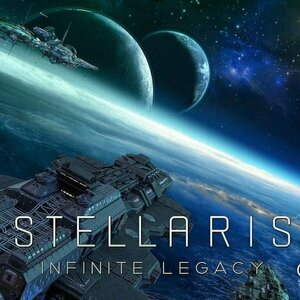
Stellaris: Infinite Legacy
Tabletop Game
The Galaxy is vast and full of wonder Academy Games introduces the 4X board game based on the hit...
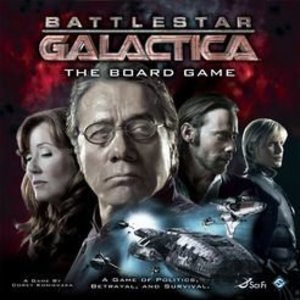
Battlestar Galactica: The Board Game
Tabletop Game
Battlestar Galactica: The Board Game is an exciting game of mistrust, intrigue, and the struggle for...
